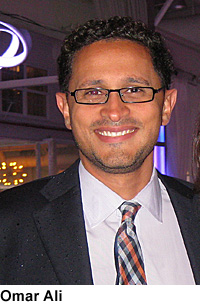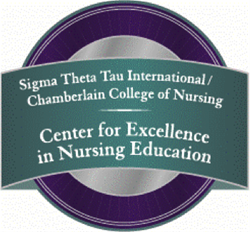Mentored individuals advance more quickly and earn higher salaries.

The year was 2000. I was a slim, clumsy, and awkward undergraduate chemistry student at Ball State University—go Cardinals!—in Muncie, Indiana, USA. I had completed my freshman year successfully but was very apprehensive about the second. This was the year students majoring in the hard sciences began registering for more complex classes. For that reason, it was also the year many reconsidered their declared majors. Suffering from the impostor syndrome, I was certain I would be “smoked out” by the third or fourth week! Maybe if I kept a low profile and attended all my classes, I could sneak through undetected.
 Most science majors had to take organic chemistry in their sophomore year. It was the dreaded weed-out course where many young students aspiring to be scientists came to the end of the road. Terry Kruger, PhD, was my lab instructor, and his reputation preceded him. A no-nonsense sort of guy, he was known for his intellectual prowess, dry sense of humor, Nietzsche-like mustache, and ability to fill a room with his tremendous presence. The quintessential “mad scientist,” he was, for a young college student, simply terrifying.
Most science majors had to take organic chemistry in their sophomore year. It was the dreaded weed-out course where many young students aspiring to be scientists came to the end of the road. Terry Kruger, PhD, was my lab instructor, and his reputation preceded him. A no-nonsense sort of guy, he was known for his intellectual prowess, dry sense of humor, Nietzsche-like mustache, and ability to fill a room with his tremendous presence. The quintessential “mad scientist,” he was, for a young college student, simply terrifying.
It was the fourth week of the semester, and I had survived thus far. I had completed all my assignments, managed not to burn down the building, and stayed relatively anonymous, but the day came when I had to meet with Kruger during his office hours. Navigating the labyrinth of offices and laboratories, I could feel my temporal pulse thumping as the smell of science—a mixture of apple cider vinegar and formaldehyde with a touch of antifreeze—filled my nostrils. A part of me was hoping he wouldn’t be there, but he was, with his back to the door. Poking my head into his office, I cleared my throat and ventured, “Um, Dr. Kruger?” His chair turned around in a dramatic and memorable manner.
“Yes, Mr. Ali?”
“Oh, no,” I thought, “he knows my name!” With my eyes down, I began to ask the question I had formulated, but when I looked up, I saw a completely different man than the one I had observed in the laboratory. Somehow, his intimidating presence had softened and become warm and inviting. He smiled, looked me in the eye, and seemed eager to hear what I had to say. I had his full attention.
What I had expected to be a two-minute question-and-answer encounter turned into a one-hour conversation, which became three years of guidance and support. In that office, I was an open book—an audio book. I spoke of love, life, the human condition, and everything in between.
Kruger was the true Socratic teacher who encouraged me to find my own answers. He helped me believe in myself. As a result of his guidance, I gained self-awareness that facilitated my professional and leadership development.
Mentors do that. They help you dig deeper. They empower, guide, and counsel. They open doors and provide opportunities that facilitate growth and success. Kruger was my first mentor. A unique and brilliant man, he influenced me greatly, both personally and professionally.
Predictor of success
Mentoring is a useful predictor of academic success. Mentored individuals are more successful, advance more quickly in their careers, earn higher salaries, and are more likely to mentor others (Johnson, 2016). In academic nursing, mentored faculty members are more likely to remain in their positions, publish more, experience faster career progress, and report increased job satisfaction (Nowell, Norris, Mrklas, & White, 2017).
Recognizing the importance of mentorship, the Honor Society of Nursing, Sigma Theta Tau International (STTI) helps harness its power by offering, in partnership with other organizations, six leadership development programs for academic and clinical nurse leaders: 1) Nurse Faculty Leadership Academy (NFLA), with the Elsevier Foundation; 2) Experienced Nurse Faculty Leadership Academy (ENFLA), with Chamberlain College of Nursing; 3) Gerontological Nursing Leadership Academy (GNLA), with Hill-Rom; 4) Maternal-Child Health Nurse Leadership Academy (MCHNLA), with Johnson & Johnson; 5) Maternal-Child Health Nurse Leadership Academy-Africa (MCHNLA-Africa), with Johnson & Johnson; and 6) Emerging Educational Administrator Institute (EEAI), with Chamberlain College of Nursing.
 ENFLA and EEAI resulted from the development of the STTI/Chamberlain College of Nursing Center for Excellence in Nursing Education (CENE). The Experienced Nurse Faculty Leadership Academy is designed for faculty members who have at least seven years of teaching experience and wish to assume a leadership role in academe, professional organizations, and the community. Participants (Scholars) select Mentors, who are experienced faculty leaders with at least 10 years of teaching experience in nursing academe, to help guide their leadership journey. The pilot cohort of Scholars finished in November 2015, and ENFLA’s second cohort is underway. To learn more about the program, read these reflections by Scholars Karen Gorton, Pennie Sessler Branden, and Rebecca Lee, all members of the pilot cohort.
ENFLA and EEAI resulted from the development of the STTI/Chamberlain College of Nursing Center for Excellence in Nursing Education (CENE). The Experienced Nurse Faculty Leadership Academy is designed for faculty members who have at least seven years of teaching experience and wish to assume a leadership role in academe, professional organizations, and the community. Participants (Scholars) select Mentors, who are experienced faculty leaders with at least 10 years of teaching experience in nursing academe, to help guide their leadership journey. The pilot cohort of Scholars finished in November 2015, and ENFLA’s second cohort is underway. To learn more about the program, read these reflections by Scholars Karen Gorton, Pennie Sessler Branden, and Rebecca Lee, all members of the pilot cohort.
The Emerging Educator Administrator Institute is designed for those who have six or more years of experience as faculty members, have been in an administrative position for three years or less, or are aspiring to be administrators. As with the ENFLA, a Scholar selects as a Mentor a more experienced academic administrator, who guides the Scholar’s leadership and administrative journey. EEAI’s pilot cohort finished in July 2016.
Each of these programs features a leadership triad composed of a Scholar, a Mentor, and an expert Faculty Advisor who oversees the development of both Scholar and Mentor. At the 44th Biennial Convention in Indianapolis, Indiana, USA, slated for 28 October to 1 November 2017, Scholars from both programs will showcase their leadership journeys in a special session and present their projects in the form of posters. Hope to see you there!
Omar Ali, MSN, RN-BC, is manager of the STTI/Chamberlain College of Nursing Center for Excellence in Nursing Education.
References:
Johnson, W.B. (2016). On being a mentor: A guide for higher education faculty (2nd ed.). New York, NY: Routledge Taylor & Francis Group.
Nowell, L., Norris, J.M., Mrklas, K., White, D.E. (2017). Mixed methods systematic review exploring mentorship outcomes in nursing academia. Journal of Advanced Nursing, 73(3), 527–544. doi: 10.1111/jan.13152